Barbie, Romance Novels, Our Feminism Discourse
7 times Barbie made me think about romance novel discourse
[Some spoilers for Barbie ahead]
I saw Greta Gerwig’s Barbie movie this weekend with my 8-year old daughter. I cackled during the Kens’ Battle of the Beach, I cried during the mom-tage, and walked away feeling both entertained and inspired.
As someone who studies romance novels, mass-produced media marketed primarily to women, I’m not surprised that a movie based on a mass-produced toy marketed primarily to girls is a summer blockbuster, especially given the multi-generational opportunity for nostalgia.
This morning, I was still thinking about the themes from the Barbie movie, and realized that many of them related to things I think about a lot with romance novel discourse.
Read Romance/Play with Barbie, Smash the Patriarchy
Because Barbie can be anything, women can be anything. Thanks to Barbie, all problems of feminism have been solved.
-Narrator
The Barbies in Barbieland live in a benevolent matriarchy, where they believe the way of life they model has influenced the Real World to the point where they’ve solved feminism.
Now if you’ve seen the movie, you know the Barbies had some learning to do when it came to gender equality (because even a benevolent matriarchy is not equality), and they also learned that the fantasy of Barbieland was not strong enough to single-handedly tear down the patriarchy in the Real World.
Similarly, thanks to readers reading romance novels, all problems of feminism have not been solved. Some romance novels help some readers imagine how they could create a more equal world, but not all of them. It’s also totally dependent on what actions that reader brings into the real world.
In episode 089 of Shelf Love with Whoa!mance, I talked about the phrase heard in Romancelandia: “Read Romance, Smash the Patriarchy.” I dislike this phrase because it furthers the false narrative that the act of reading romance is in itself a feminist act that works toward the destruction of patriarchy.
Lots of children played with President Barbie, but we’ve yet to have a female President in the U.S. Just because you can dream it, doesn’t mean you can be it.
Inspiration is a story and stories do have power, but the recipient has to do something with it. If romance readers do take away feminist messages from the books they read, they’re on their own journey in figuring out what to do with it.
Will the reader choose the high heel (the status quo) or the Birkenstock (change)?
Pop Culture Cannot Escape Capitalism
"Don't blame me. Blame Mattel; they make the rules."
— Weird Barbie
"We sell dreams, imagination, and sparkle. And when you think of sparkle, what do you think of next? Female agency."
— Mattel CEO
Romance novels are consumer products. The Barbie movie is a consumer product about a consumer product.
No matter how well-intentioned and brilliant romance writers are and Greta Gerwig are, they are all still bound by a capitalist industry where people make decisions for the good of the corporation and not the good of people.
Even when it seems like Mattel is acknowledging their corporate interests, it’s seeking to humanize the corporation to the viewer. The extended slapstick chase scenes and America’s Dad Will Ferrell as CEO drained all menace from the corporation, even as they acknowledge that the girl power brand has only had one or two female CEOs ever and that they’re driven by profit above all else.
Pop culture is profit-driven - the “popular” part means it’s mass produced for maximum return on investment.
Capitalism is a critical lens through which we should think about the Barbie movie and through which we should think about romance novels.
When it comes to progressive themes, texts produced by a corporation will never go as far as we may want it to go, while still going too far for some people.
In order to be produced and get wide distribution through corporate-controlled channels, creators of romance novels and Barbie movies must be complicit or align with capitalist interests to at least some degree.
It doesn’t mean the creators of the works must be capitalist shills, but it does means that we should always be aware of the choices made in the work’s production (including which work was NOT chosen) and be aware of the trade-offs and boundaries around how far it can reimagine the world.
Turnabout is Not Fair Play
Basically, everything that men do in your world, women do in ours. -Barbie
Where do the Kens stay? -Sasha
I don’t know. -Barbie
Objectifying men is not feminism.
In the Barbie movie, the Barbies realize that while they had created a world where women held power, they had also created a world in which the Kens had no identities of their own. Kens didn’t own property, have a say in government, and they weren’t able to take on meaningful activities and identities of their own that didn’t mirror “their” Barbie.
By no means am I saying that the Barbieland matriarchy rose to the level of gendered violence and oppression in the Real World, however it was also not the utopia of gender equality the Barbies initially thought. (And they realize the issue and take action to address it!)
Romancelandia is a community dominated by women. This does not make it a utopia of gender equality.
In an episode with Lynell from the book blog Weekend Reader, we discussed how romance novels are increasingly putting emphasis on consent from women in the texts, but aren’t often as concerned about men’s consent.
Men are often portrayed in romance novels as having less emotional depth than women, which furthers the harmful sexist stereotype that men are not capable of the same emotions as women or that they are solely motivated by primal desires.
And, while body diversity among women in romance novels is becoming more common (although there’s still a long way to go!), it’s vanishingly rare to find men in romance who are heroic and don’t have rippling 6 packs.
When it comes to the sexualization of men on romance novel covers, I don’t see a problem with grown adult models consenting to their images being used in cover art. However, the practice of using photos and videos of celebrities or others who have not consented to the use of their images in sexualized fantasy in romance novel promotion or “book boyfriend” discussion (such as in Reels/TikToks, mood boards, etc.) routinely crosses the lines of consent.
“I’m just Ken” - The Perceived Stigma of Romance
“Where I see love, she sees a friend.” - Ken
“It’s not about how they see us. It’s about how they see themselves.” - Gloria
Ken loves Barbie - Barbie does not love Ken. She doesn’t hate him - the issue, in fact, is she just doesn’t feel that strongly about him.
I loved that the movie allows Barbie and Ken to resolve the emotional misunderstandings between them without forcing Barbie to reciprocate Ken’s feelings. Barbie is very clear that she likes Ken as a friend, but she’s not interested in more. She helps him see that her love won’t complete him, and she doesn’t owe it to him. Barbie’s validation isn’t what will help Ken: he needs to understand who he is not in relation to her.
You know who doesn’t owe romance love? People who don’t read romance.
I’ve spent a lot of time studying the stereotype about romance novel readers, and the data supports my conclusion that most people who don’t read romance are basically indifferent about romance. They don’t love the genre, they don’t hate the genre…they’d probably be fine to hang out as friends, but no, they don’t want to date.
That’s OK!
Why do romance readers think there’s such an intense stigma against romance from others? People who don’t read romance do not owe us nor should we expect their validation!
It’s not about how they see us. It’s about how we see ourselves. Romance needs to find its own identity that’s not just in opposition to or in competition with other genres. They’re all good genres.
Problematizing is Empowering
Giving a voice to the cognitive dissonance required to being a woman under the patriarchy robbed it of its power. – Barbie
In the Barbie movie, the Barbies, Allan, the discontinued dolls, and Gloria and Sasha from the Real World are able to fight back against the Ken-dom patriarchy not by ignoring its issues but by acknowledging the cognitive dissonance of the double bind.
Romance novels are often engaging with or reflecting the double bind of the patriarchal society we live in. That means that the books themselves can be full of cognitive dissonance.
Rather than sweeping these issues under the rug because we feel it will ruin the thing we love, problematizing romance novels and bringing the issues out into the open can be empowering.
Nothing is perfect — especially pop culture packaged by corporations! — and perfection is an impossible goal. When we accept that there’s no such thing as perfect media and that acknowledging problems empowers us as consumers, we empower ourselves as consumers and have the potential to help others gain new understanding that empowers them.
I think the most interesting conversations about romance happen when we’re curious and honest with ourselves, even if it makes us uncomfortable.
Progress not Perfection
"We mothers stand still so our daughters can look back to see how far they have come." Ruth Handler
Ruth Handler is the creator of the Barbie doll. A fictionalized ghost of Ruth counsels Barbie as she considers if she is going to stay in Barbieland or go live in the Real World.
Ruth: “You don’t need my permission.”
Barbie: “But don’t you control me? You created me.”
Ruth: “I don’t control you any more than I could control my own daughter.”
No matter how the romance genre used to be, we are all free to make our own choices about what it means to us and how we contribute to its future.
Early writers and texts are frozen in time like amber, and we can marvel at how different the romance genre is now. We are not beholden to them, but we might be too quick to judge some work based on our current cultural moment.
Our curiosity about the intentions and impact in early romance writers’ moments will often be rewarded by a much more interesting story than one that forgets that hindsight is 20/20 and that the genre is always reinventing itself in response to or building on top of what came before.
Fiction vs. Reality: the HEA
Ideas live forever. Humans, not so much. -Ruth
Barbieland is untouched by entropy — every day is perfect, but every day is also basically the same. Midge is perpetually cheerfully pregnant and the milk is perpetually fresh without ever requiring a visit the grocery store.
While Barbieland features a carefully curated cast of perfectly coiffed young-ish people with different body shapes and skin colors, Barbieland doesn’t have cellulite, it doesn’t have aging, and it certainly doesn’t have death.
There is no ending in Barbieland, because ideas live forever. Also because life in plastic is fantastic.
In romance novels, while there’s always an ending (because books, like people, must end), and it must always be emotionally satisfying, the Happily Ever After (and even the Happy For Now) actually also create a world in which there is no end for our beloved characters.
Riding off into the sunset is, in its own way, shielding the reader from an ending. The ending of the book is not the ending of the story — we imagine it goes on forever without end. Our lovers never die, and we don’t want to think about them dying.
It’s a beautiful fantasy world, but it’s not the real world.
When Barbie sees an old woman for the first time at a bus stop, her immediate awe-filled response is to tell the woman that she’s so beautiful. The woman’s response is a cheeky, “I know it!”
Barbie never realized all the things she was missing out on. When she learns how to cry, her verdict is it’s “achy, but good.”
Romance novels are really just stories of beginnings, and the fun is in imagining a new beginning every time we open up the book, because there are endless possibilities we’ll never get to explore in real life. Romance novels create a way for us to start over in a way we can never experience in real life.
Each story is like a brand new Barbie in a box, with no lost shoes or tangles in her hair, and the confidence that every day is going to be better than the last.
You’d think that the escape would make the crash landing of reality that much harder, but I think it helps us find new appreciation for all the achy, but good parts of life.
Thanks for reading! Did you see Barbie? What did it make you think about?
xoxoxo,
Andrea
PS: I was recently a guest on Pod Culture Oz talking about Adaptations! I talked about The Hating Game, Mr. Malcolm’s List, and North and South. Take a listen?





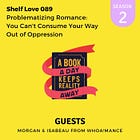
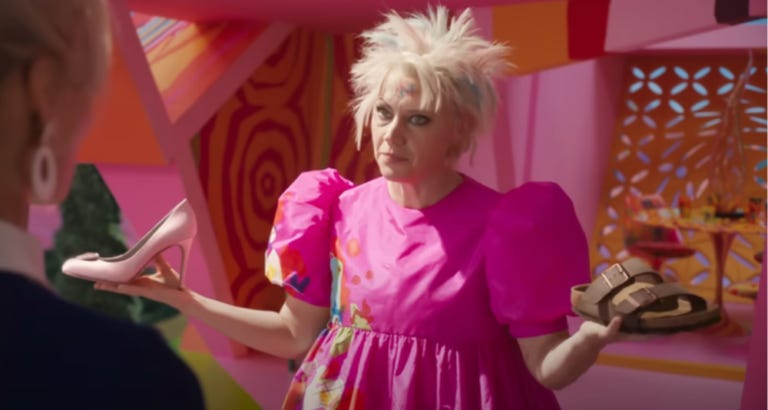
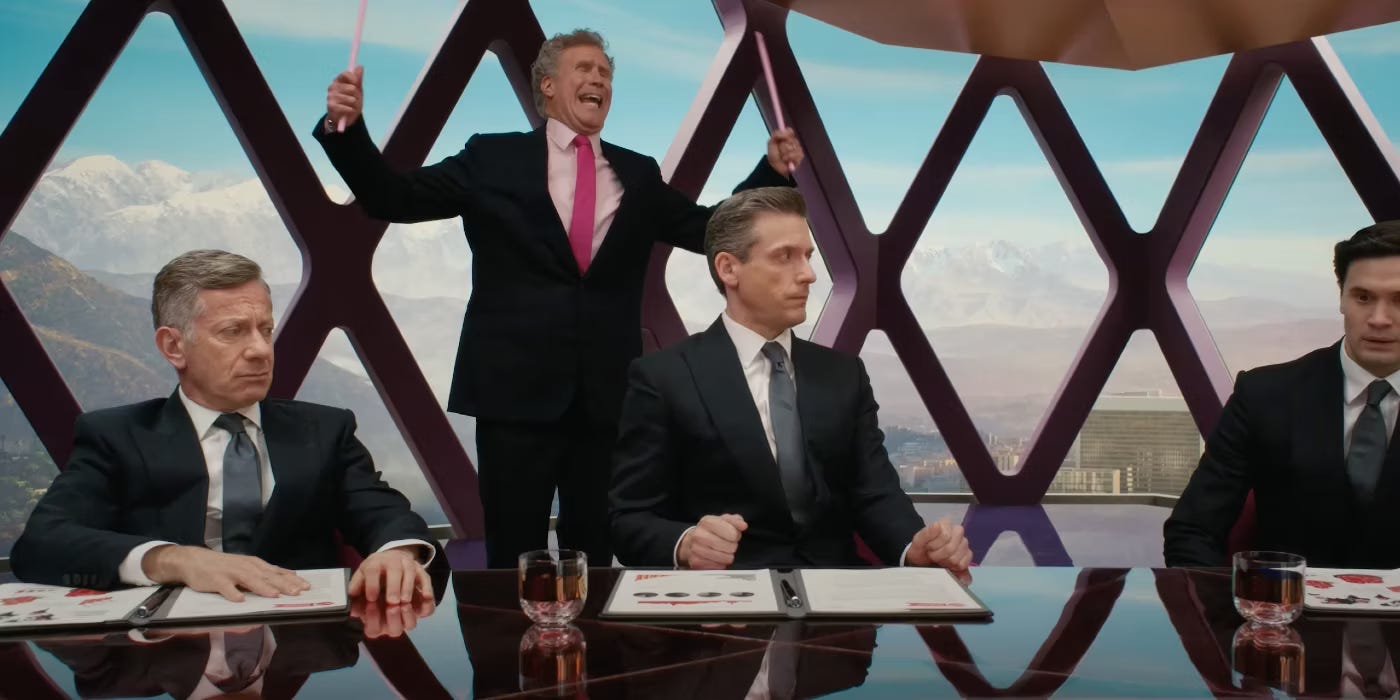
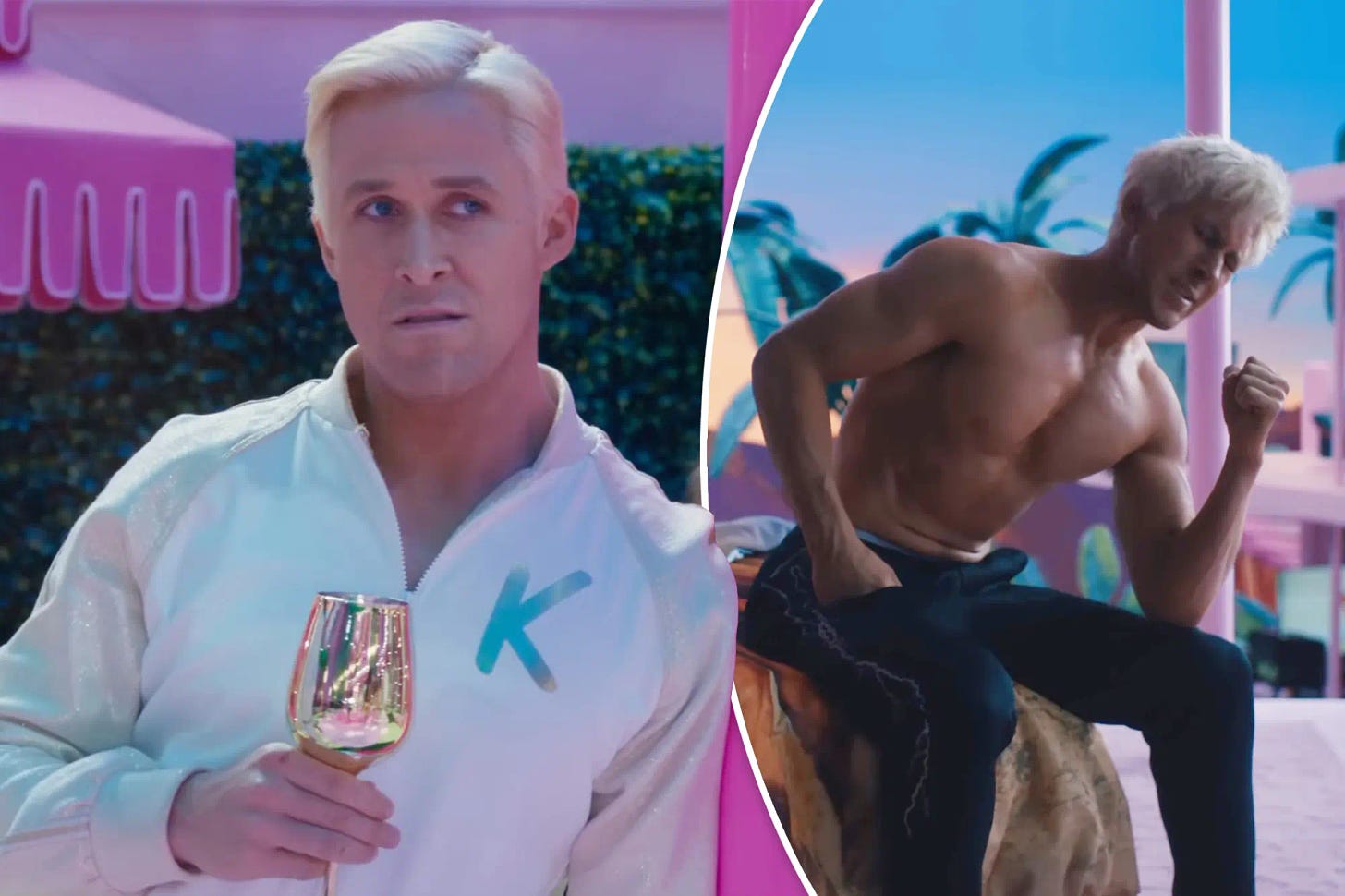
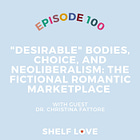
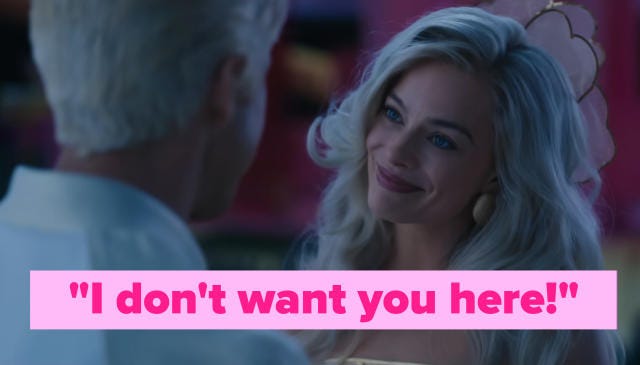
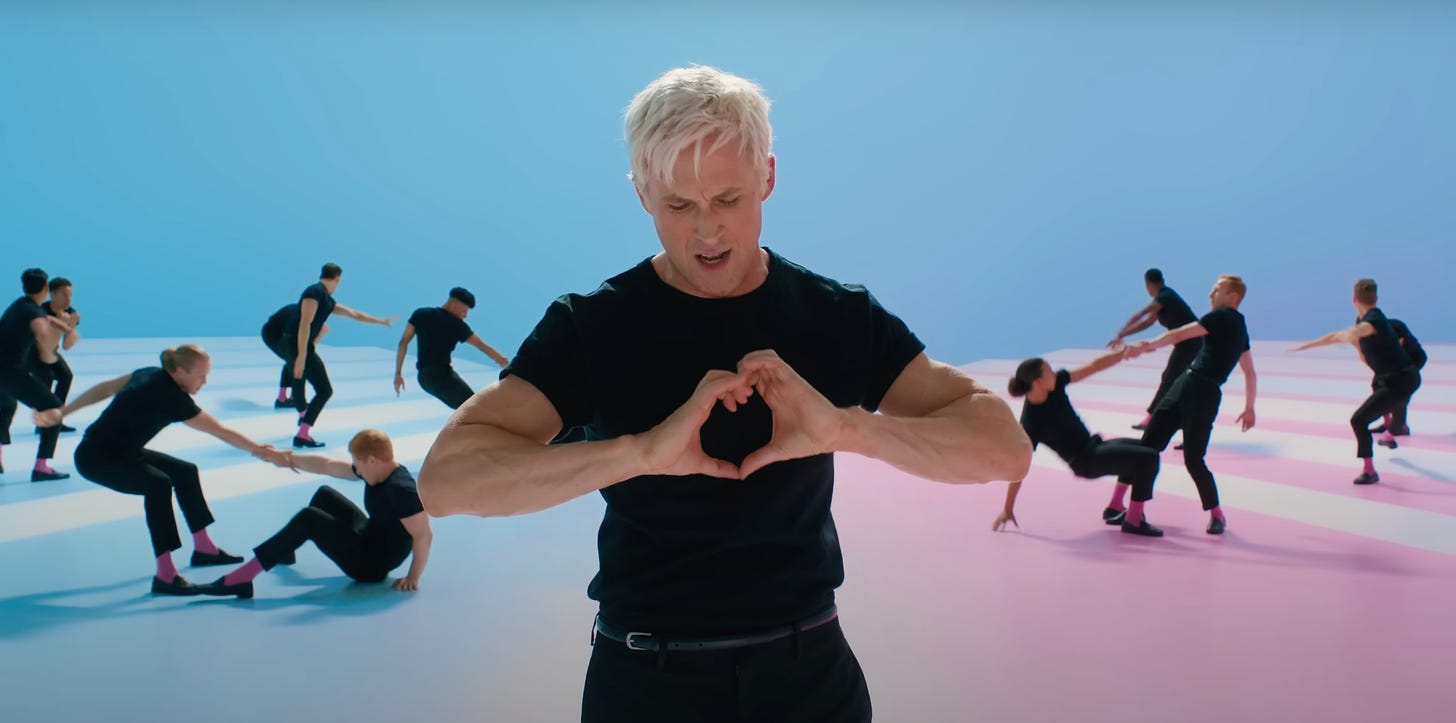
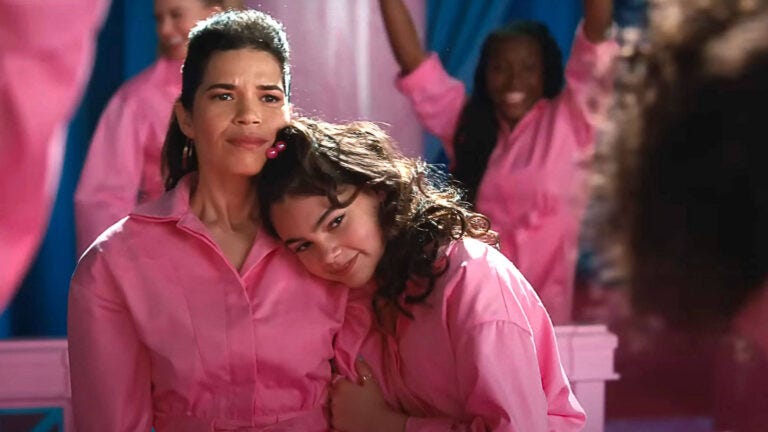
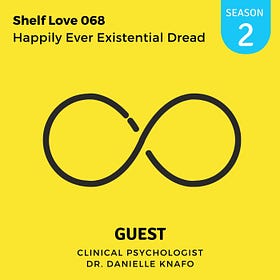
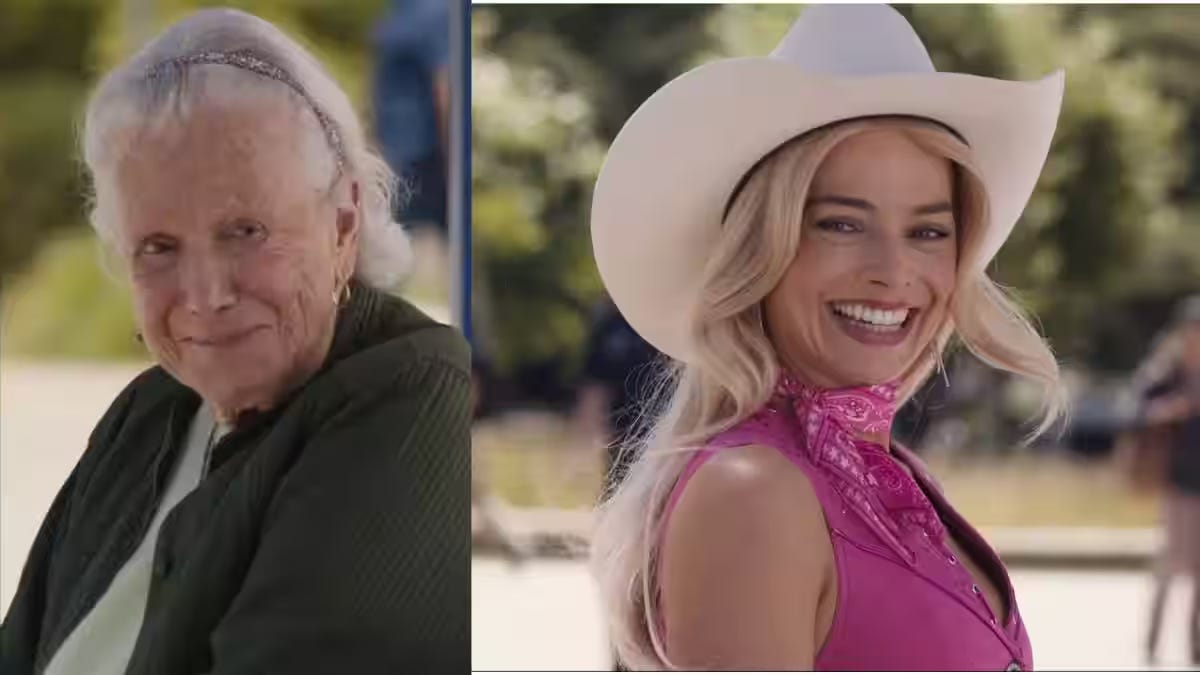
I haven't seen the movie yet, but this was a really interesting piece. Your point about the endings hit home because I recently read a review of a book which was described it as having a "temporary HFN" because the relationship was between a human and an immortal being who decided to let themselves love, even knowing it would mean pain in the end. I don't see how that's any more temporary than any other romance between two humans, but of course it contradicts that "shielding" you mention.
Such an interesting comparison! When you mentioned objectification of real people, were you talking about the Seattle Krackens hockey team and the book tok debacle?
https://www.thecut.com/2023/08/hockey-star-alex-wennberg-booktok-sexual-harassment.html